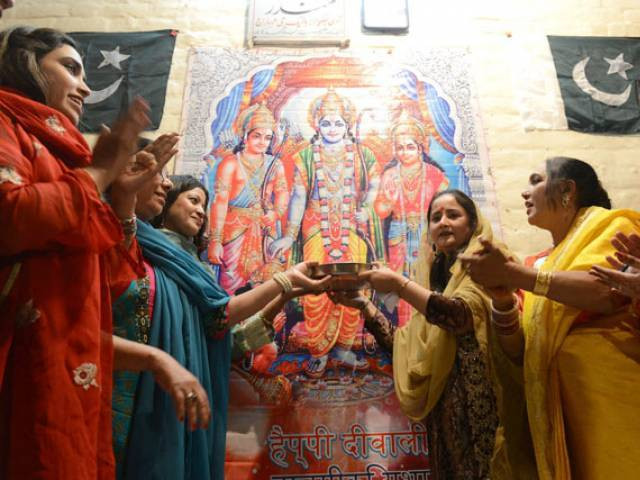Uplifting minorities requires securing their rights: report
PIPS says discrimination against minorities seems pervasive

PHOTO:FILE
An independent think tank, PIPS, on Wednesday released its report “Freedom of Faith in Pakistan: Contextualising Programmatic and Policy Orientation,” as a special issue of its research journal “Conflict and Peace Studies.”
Organisations advancing human and minority rights have to scale down their activities, because of restrictive governmental policies as well as threats from extremists. Yet new workable ways can be explored in form of providing tangible services to religious minorities, such as uplifting them economically, and documenting their identity and marriages, as per their faiths said the study.
Minority members seek larger slice of the electoral pie
The report was based on individual and group interviews with religious scholars, NGO workers, academics, lawyers, and religious minorities’ representatives in the four provincial capitals and Islamabad.
PIPS said the report was released with the hope that the new government prioritises the issues of religious minorities in an environment they increasingly find suffocating. These will also help mainstream them in true sense, enabling them to freely practice their faiths.
Muslims biggest ethnic minority in China, reveals white paper
The journal noted that grievances of religious minorities in Pakistan have many common threads, ranging from societal discrimination to economic exclusion. Christians in particular point to the misuse of blasphemy laws against them, and Hindus in Sindh decry their girls are being forcefully converted into marriage.
The society at large condemns militant violence, but the thinking behind it, especially against people of different faiths, is rarely taken upfront. This creates an impression as if faith-based discrimination is a pervasive phenomenon, not restricted to any particular background.
To be sure, there are organisations working for the betterment of religious minorities. Yet, the report noted, these same organisations, working on “rights” or “peace” issues, have increasingly being forced to scale down their activities. Their space has mostly shrunk in parts of KP, Balochistan, and in some cases, interior Sindh and southern Punjab – areas deemed sensitive in government eyes, but require priority socio-economic attention, including for religious minorities. Excluding them from any programmatic or policy work will only widen the disparities within.
Yet, working on many other fronts can bring about some positive changes. Besides reforming the criminal justice system, the new government should not shy from delegating authorities at local level, where violations occur and can be stopped.
The report noted that faith-based vulnerabilities also interplay with other identities and their remedies can also be sought in those spheres too. In the case of Hindus in Sindh, the newly-converts are mostly young girls even below 18; conversion of boys has been unheard of. Poverty is an aggravating factor, and economic mainstreaming is seen as a great antidote. Those who are poor such as scheduled-caste Hindus in Sindh and poor Christian labourers in Punjab, at times even lack proper documents that establish their basic identity or marriage status, leaving them vulnerable to exploitation. The rules of 2016 Hindu-specific personal law is yet to be charted.
In addition to non-government organisations, religious scholars can be engaged too, who can help remove misperceptions about each other. If past is any guide, engagement of scholars have been successful where the results were more quantitatively defined, such as in the case of anti-polio or anti-dengue campaigns. Specifics can be sought in case of inter-faith harmony initiatives too.
Attempts to reform curriculum are repeatedly pointed, and even undertaken, but without mandating the participation of non-Muslims and women in the review boards, any reform there is bound to be questioned.
At the same time, at least the constitutional rights of minorities shall be disseminated to different educational establishments, and the country’s obligations to several international conventions it has signed, shall be made part of curriculum of public officers’ academies, as well as in the training of journalists. These are all do-able suggestions, which can send a positive message to the minorities.
Published in The Express Tribune, August 2nd, 2018.



















COMMENTS
Comments are moderated and generally will be posted if they are on-topic and not abusive.
For more information, please see our Comments FAQ